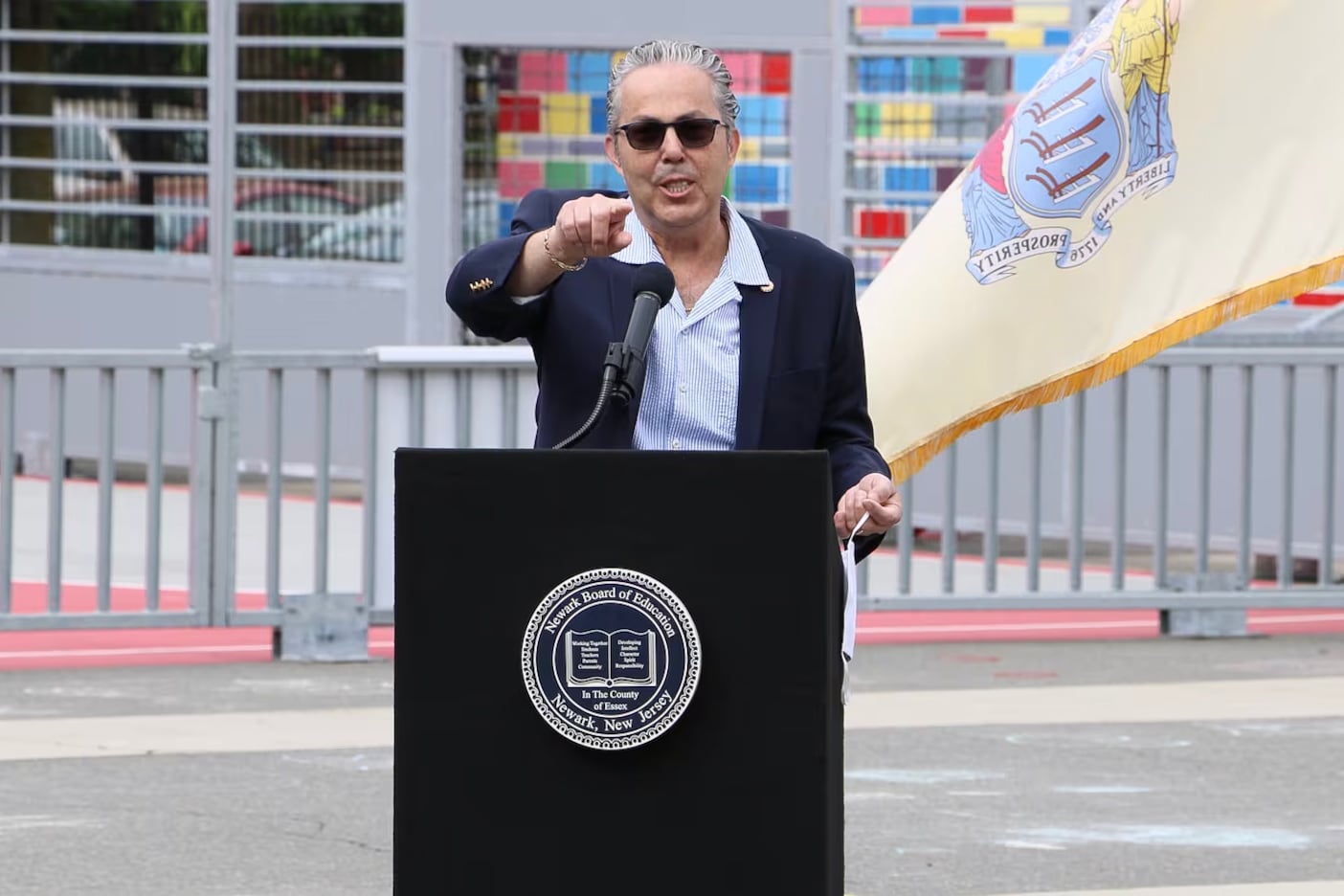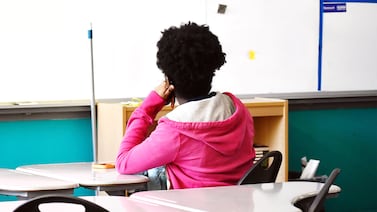Sign up for Chalkbeat Newark’s free newsletter to keep up with the city’s public school system.
The Newark Teachers Union is negotiating a “historic” and “unprecedented” contract that demands higher salaries, more autonomy, and respect for teachers, says union President John Abeigon.
Negotiators for the union and the district held their first meeting on Jan. 11 to discuss the contract. If approved, it will be the second contract for teachers since the state ended its 23-year takeover of Newark Public Schools in 2018 and the third union negotiation with Superintendent Roger León since he was appointed by the city’s school board in 2018. It would replace the union’s 2019 contract, which expires at the end of June.
“We look forward to successful negotiations over the next few months for the benefit of our staff and the ultimate beneficiaries, our students,” said Newark Public Schools spokesperson Nancy Deering.
The end of the state’s takeover of the district signaled a change for teachers who had long wrestled with New Jersey officials about the declining conditions in city schools and their roles in them.
The union’s 2019 contract, for instance, ended the practice of paying teachers based on their students’ performance, rather than how many years they spent in the district or the degrees they attained – a provision of the union’s 2012 contract. In the past, the union head fought incessantly with state-appointed superintendents Cami Anderson and Christopher Cerf, resulting in tense negotiations and public feuds.
Anderson, who was superintendent from 2011 to 2015, closed and consolidated schools causing a pool of displaced educators in the district, and she oversaw the city’s rapid expansion of charter schools. Cerf, who replaced Anderson in 2015, was also criticized by teachers and community advocates for his charter-friendly stance and for closing low-performing schools in the city.
Today, Abeigon, who was elected as union president in 2015, has a more amicable relationship with León. Regardless of who is on the opposite side of negotiations, though, Abeigon said his team is focused on fighting to improve teachers’ current working conditions.
“We will continue to fight for those same things we gained in 2019 but instead of stopping at where we once were, we intend to move beyond that, and forge new territory and create a mecca for teachers who wish to be recognized in the manner the profession demands,” Abeigon added.
The union will continue to negotiate with the district every Thursday until they reach a deal, Abeigon said.
Pay raises for teachers
In 2019, the union reached a deal to raise salaries by 2.9% the first year with raises growing each year, capping at 3.3% in the 2023-24 school year. The contract also included pay increases for advanced degrees, substitute teachers and aides, and more planning time for teachers.
Now, the union is looking to secure the highest teacher salary in the country, Abeigon said. Currently, New York teachers have the highest average salary in the nation, with some earning over $90,000 a year, according to 2021-22 data from the National Education Association. In New Jersey, the average teaching salary hovers around $79,000 annually, according to the same data.
In June 2022, the district agreed to raise the starting salary for new teachers to $62,000 a year after it negotiated with the union as part of a recruitment strategy amid staffing shortages during the pandemic.
Abeigon says higher pay means more respect for teachers who are still working through the negative effects of the pandemic on students, such as learning loss and an increase in mental health needs. It also communicates more respect for teachers, Abeigon added, which in turn, retains them, a problem the district has endured amid teacher and principal turnover.
“With a higher salary, we’ll be able to recruit and retain the best,” Abeigon said.
Improving working conditions to keep teachers in Newark
But pay alone won’t keep teachers from leaving the district, Abeigon said. Uniformity and more teacher involvement in the decision-making processes will help retain teachers, he said.
Teachers need more educational responsibilities and less pressure to fulfill duties outside of their teaching role, Abeigon said. Some teachers have been asked to serve as security guards, fix classroom leaks, or other tasks outside their day-to-day duties, he said. District leaders also need to focus on teacher and staff morale, as some face burnout and frustration.
He envisions a “teacher-led” school district that relies on everyone to do their job, said Abeigon.
“You show me the school and I’ll tell you the level of morale. Some of them are so worn that the morale is in the basement,” Abeigon said.
Other teachers are frustrated with changing curriculums, inefficient professional development, and lack of understanding of the challenges they face in the classroom, Abeigon said. They plan on creating a schoolwide and districtwide curriculum committee that oversees curricula across all grade levels and helps workshop those lessons with teachers. The goal is to have uniformity across the district and leave decisions about learning to teachers.
“Let’s replace the useless mandates, and the time consuming data consumption with responsibilities, educational responsibilities,” Abeigon added.
Jessie Gómez is a reporter for Chalkbeat Newark, covering public education in the city. Contact Jessie at jgomez@chalkbeat.org.






